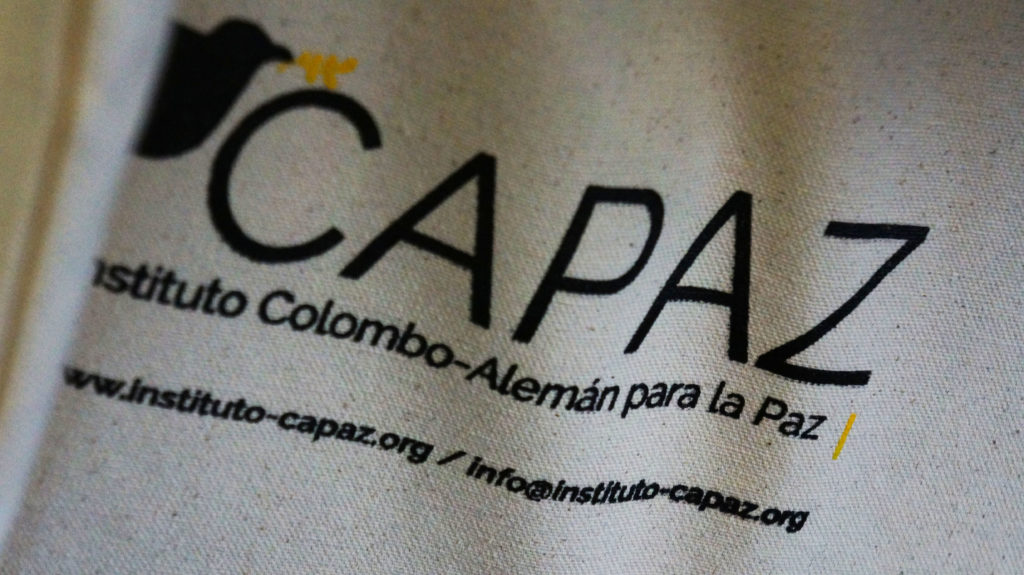
Here at CAPAZ, we would like to highlight the work of the group of people who collaborate in our ongoing projects and initiatives. At the end of 2020 and the beginning of 2021, our CAPAZ team grew when two new…
READ MORE
02
Apr
2021
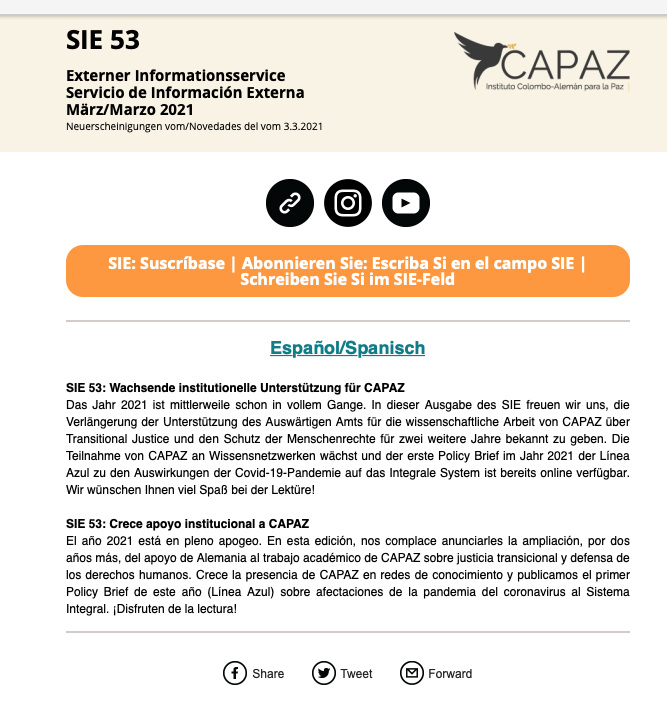
SIE 53, marzo 2021: Crece apoyo institucional a CAPAZ – Español
SIE 53, im März 2021: Wachsende institutionelle Unterstützung für CAPAZ – Deutsch
…
READ MORE
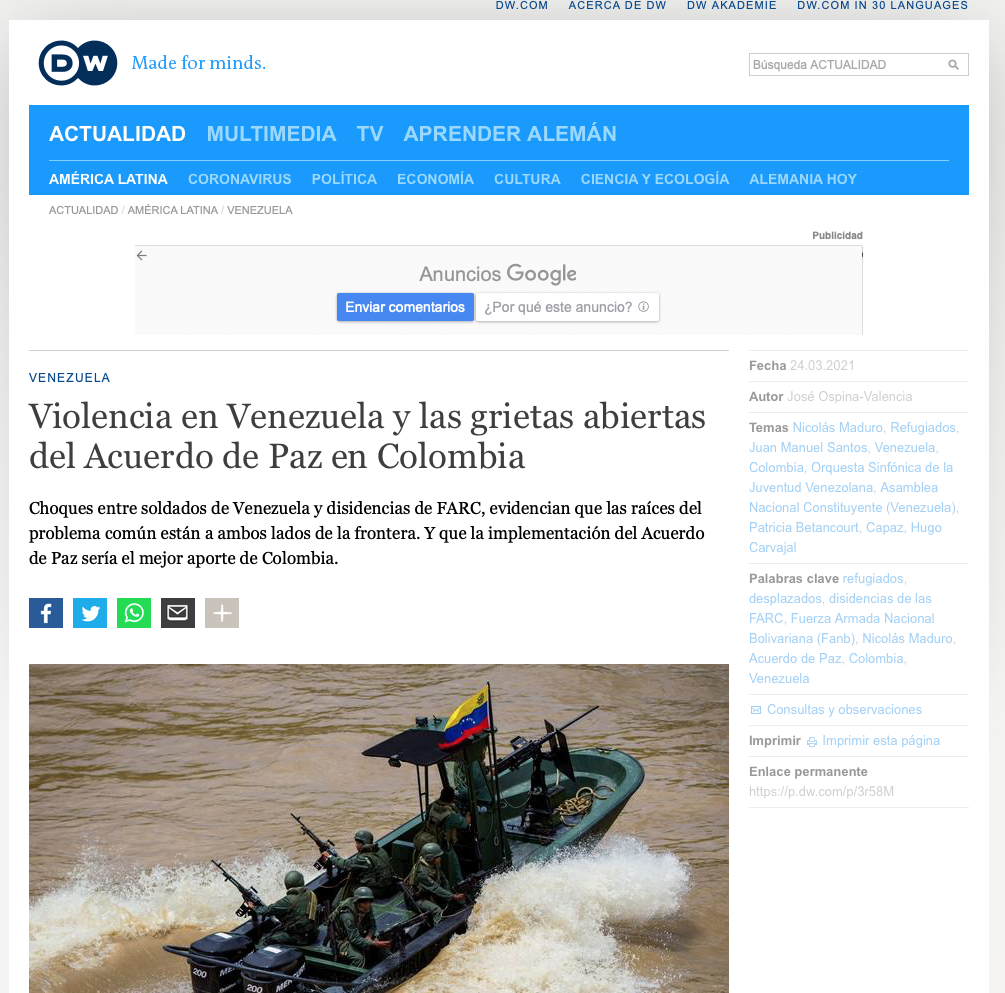 Captura/Screenshot DW Online
Captura/Screenshot DW Online
“Violence in Venezuela and the open cracks of the peace agreement in Colombia” is the title of an article by the German broadcaster Deutsche Welle (DW) in which CAPAZ Academic Director and professor of peace studies at Justus Liebig University…
READ MORE
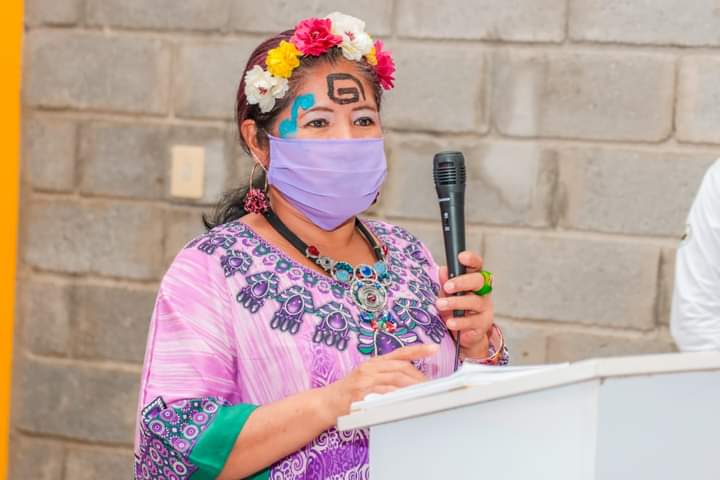 Representantes de la sociedad civil participaron en el acto de presentación del informe. Foto: CODEBAC
Representantes de la sociedad civil participaron en el acto de presentación del informe. Foto: CODEBAC
The CODEBAC Association presented its report to the institutions of the Comprehensive System of Truth, Justice, Reparation and Non-Repetition (SIVJRNR) during an event that brought together authorities, civil society representatives, and victims of the armed conflict on March 19, 2021. …
READ MORE
24
Mar
2021
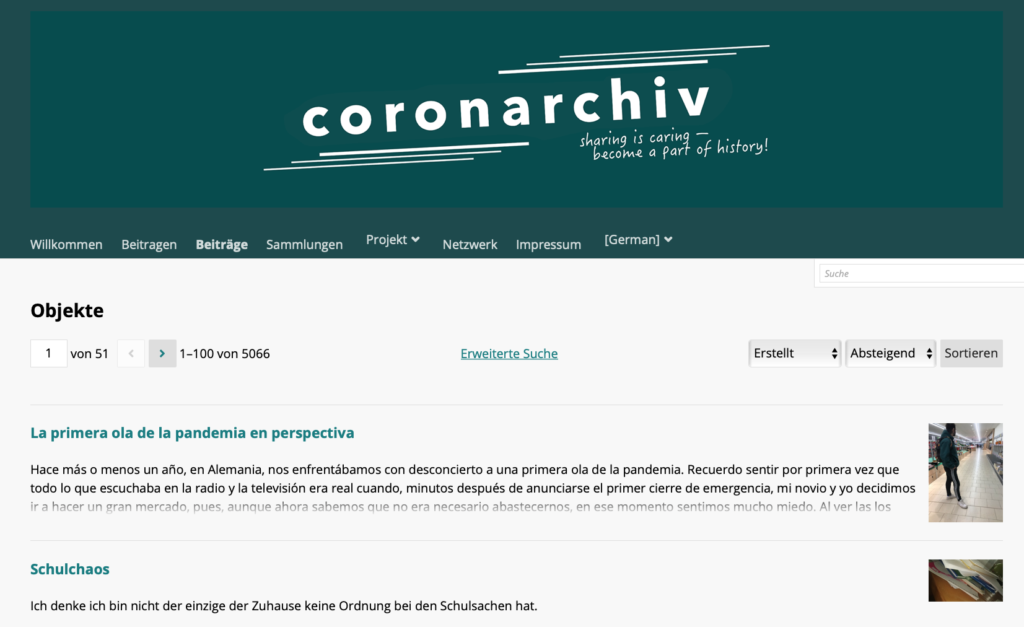 Website Coronarchiv
Website Coronarchiv
Three German universities in Hamburg, Bochum and Giessen —the latter, a CAPAZ founding member— have set up the “Das coronarchiv” (The Coronarchive) project to collect and record personal experiences resulting from the COVID-19 pandemic.
This public history project, labelled with…
READ MORE



